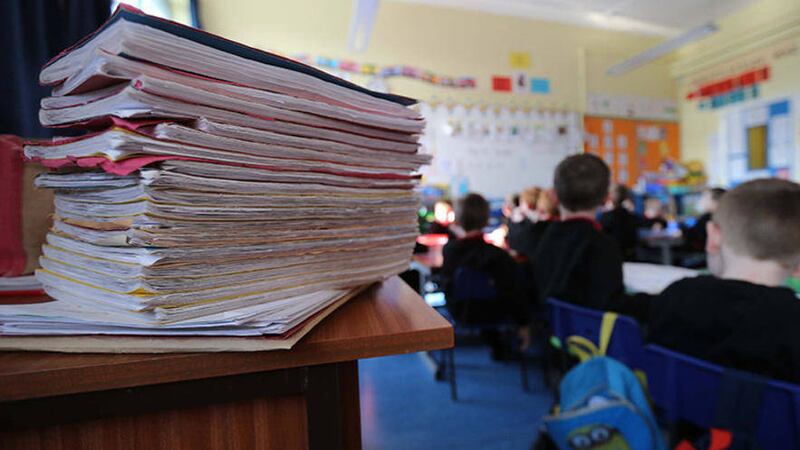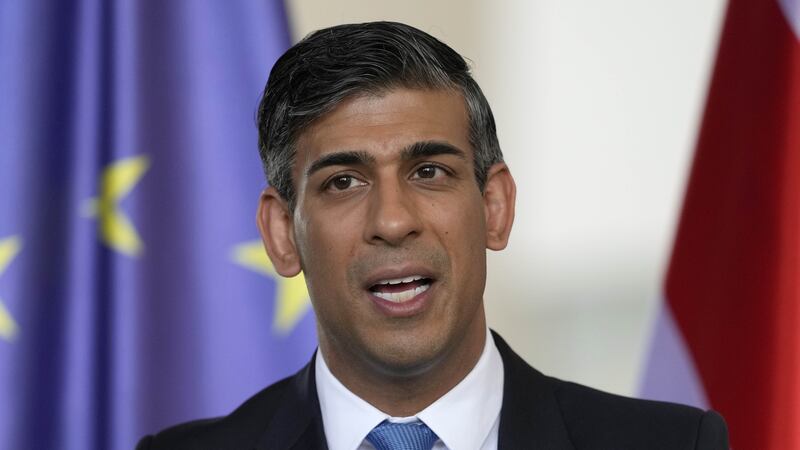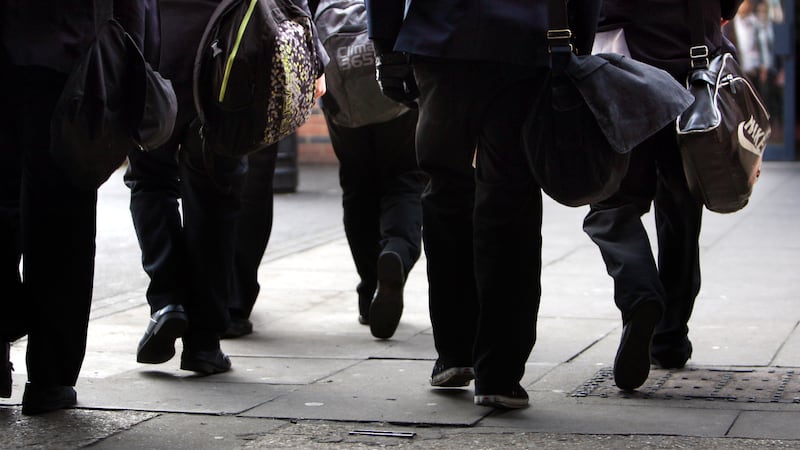New buildings are on hold, classroom jobs are at risk and reading schemes are being slashed - yet schools are hoarding millions of pounds.
Savage cuts to public spending means there is not enough money in education for vital initiatives but hundreds of schools are continuing to sit on massive surpluses.
Savings of almost £200 million must be made across the education system in 2015/16 and there have already been repeated blows to schools as Stormont budget pressures bite.
Hundreds of jobs are under threat. At a meeting of the assembly education committee, minister John O'Dowd said the approximate number of redundancies caused by budget cuts "will be 500 teachers and 1,000 support staff" over the next year.
One teaching union - the INTO - has already taken strike action in protest.
Other casualties include a multi-million pound drive to improve the reading, writing and counting skills of the 'poorest' pupils, which has been wound up.
A £4.7m cash fund to help schools tackle obesity and dental decay among children is to be entirely wiped out while the Primary Modern Languages Programme, providing Spanish, Irish and Polish classes for primary school children, is being scrapped at a saving of £900,000 a year.
In addition, the Booktrust budget, which distributed free books to encourage parents to read to young children, has had its funding of around £300,000 removed while cash for building work and school maintenance has been cut by millions.
It has now emerged that 836 schools - about 80 per cent - were in surplus at the end of the 2013/14 financial year.
The combined surplus was close to £56m in 2013 and more than £50m last year. Figures for March 2015 will not be available until later in the year, but sources indicate it will again be between £40m and £50m.
The minister has warned schools that they should not be spending, not saving, their annual budgets.
St Patrick's College in Dungannon has had the largest surplus for the past two years - with £815,620 last year, up from £801,996 the previous March.
In the former South Eastern Education and Library Board area, three secondary schools - one Catholic, one state and one integrated - ended the year with more than half a million pounds unspent. They were St Colm's in Twinbrook, Laurelhill in Lisburn and Fort Hill in Lisburn.
Data is not available for voluntary grammar and grant-maintained integrated schools, for which the Department of Education is the funding authority.
Some school leaders have admitted being uncomfortable with managing finances, and therefore those for whom monthly returns are showing to be on track or above allow things to roll over to the end of March.
Others monitor the situation closely, amid fears that the minister might adopt a `use it or lose it' approach.
Mr O'Dowd told the Irish News that given the constrained financial circumstances facing the education sector in 2015/16 and beyond, it was essential that the Education Authority (EA), as the funding authority for all maintained and controlled schools in the north, "secures effective financial management in each and every one of its schools".
"The existing guidance makes it clear that schools must seek to live within budget and that no school may plan a deficit without the approval of the EA," he said.
"In managing their budgets, schools need to ensure that there is clear alignment between their financial plan and a school development plan which complies with statutory requirements.
"I do not wish to see excessive surpluses of public funds being accumulated by schools without good reason and schools should therefore not build up significant level of savings unless there is a specific purpose in mind, which has been communicated and agreed with the EA and this is included specifically within their corresponding 3-year plan."





